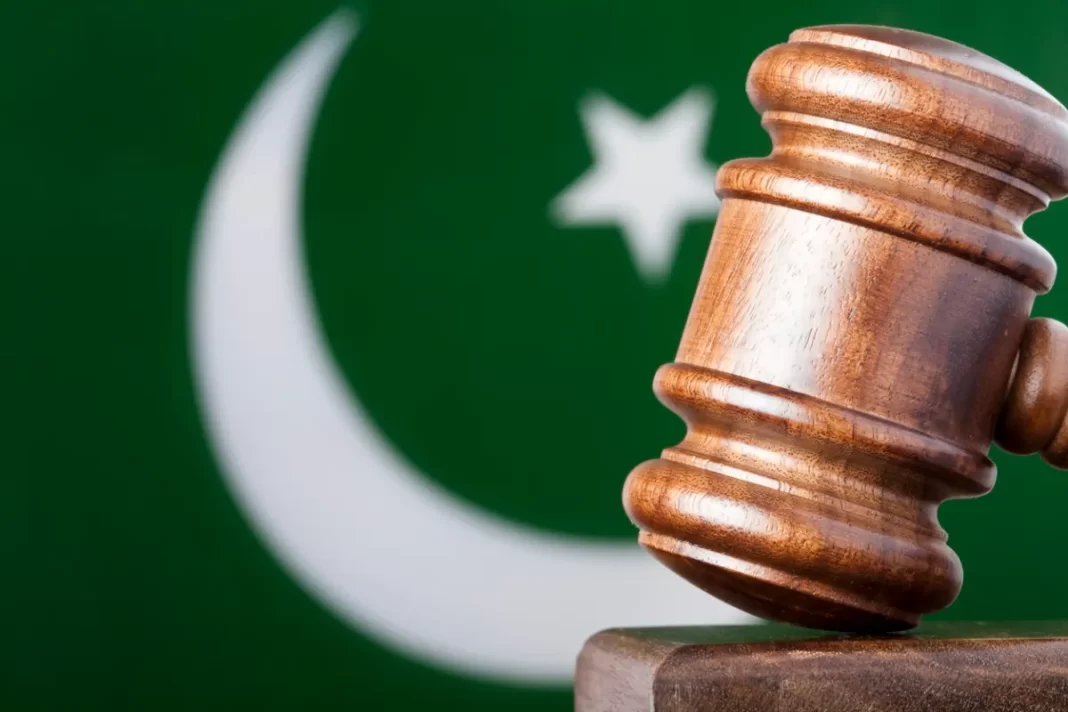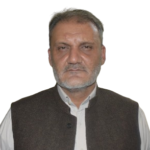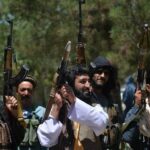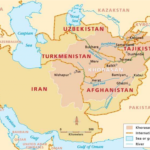The Supreme Court of Pakistan reaffirmed its position as the strongest voice for supporting terrorism in the country. Hearing a petition from Asma Jehangir, representing the Supreme Court Bar Association (SCBA) lawyers, the Supreme Court has stopped all execution orders issued by the military courts.
Honestly, this comes as no surprise to me, and those who know the attitude and track record of the courts in Pakistan. When the 21st Amendment was passed, Asma Jehangir’s was the first voice to speak against the establishment of military courts and the re-instatement of the death penalty. This has been the track record of this “human rights activist” for decades. If it’s good for Pakistan, Asma Jehangir will be against it.
In her petition, she argued that the military courts of not protect the fundamental rights of the criminal including the safeguards to arrest and detention, fair trial, protection against retrospective punishment, protection against double punishment and inviolability of dignity of persons. The question that I would pose to the celebrated human rights activist is simple.
Did the terrorists being sentenced by the military courts safeguard these rights for those who they executed?
It is well known that the terrorists use every form of brutality prior to executing the innocent civilians that they grab in the middle of the night. They beat them, burn them, deprive them of food and water, and when they have done their damage, they slit them from head to toe and hang them from light posts as a warning to others. These are the people whose rights should be protected under the Constitution of Pakistan in Ms. Jehangir’s mind.
I find it absolutely hilarious that the safeguards of the Constitution of Pakistan are being argued for those who have publicly said that they don’t respect the Constitution, and that if they were to take over Pakistan, the Constitution would cease to exist as a document or law. I also find it comical that this human right activist is taking up the case of the terrorists, rather than arguing for the victims of the Model Town massacre by the Punjab Police, the victims of Baldia Town, the victims of target killing in Karachi or the other fundamental rights given in the Constitution of Pakistan.
No, our human rights activists are only interested in the rights of those who stand against the military and against Pakistan. They are not interested in the weak and poor who have been victimized by the government institutions.
But let’s be honest, it was this same human rights activist that was one of the loudest voices for the restoration of former Chief Justice Iftikhar Chaudhry and was also one of the loudest voices cursing him after he was restored. Was it that she wasn’t able to recognize his true face when arguing for him or to immoral to care what he would actually do to Pakistan once he was restored?
I rarely talk about my own background. I was in Swat during the TTP invasion. I remember the brutality that was used against my friends and family members. I remember my cousin’s car being riddled with bullets because someone said that he had been unfair with one of his employees. He’ll never walk straight again. I remember the TTP marauders climbing the boundary wall to my aunt’s home, looting it and planting explosives to make it rubble. She lives in a foreign country now because she can’t return to Pakistan until they are all eliminated.
I remember the TTP killers climbing walls of other friends’ homes and victimizing women after taking all the weapons in the home and holding the men hostage. I remember walking in Khooni Chowk, what used to be Green’s Chowk, in Mingora. It was renamed because it became the center for the justice that the TTP carried out. Cases were heard by one man, who would then order the most brutal execution of the victim – they were cut and hollowed like animals being slaughtered for food – and then order that the victim be hung with their insides falling out from electricity poles as a warning to others who would dare stand against them and their form of justice.
I remember the stench of death in that place. Even now, after Swat has been freed by the Pakistan Army, when I walk there, I still feel the brutality that was carried out there. I still see the horrific acts that happened in my home.
These things will haunt me for eternity. These things will live inside me until I return to the dust I was created from. And these things will keep me from giving a damn about the rights of those who committed these horrific acts.
These sentences were not transparent, the victims not given access to proper legal representation. The victims were tortured prior to their execution and the terrorists took great pride in their handiwork, sometimes using torture during the “hearing” at Khooni Chowk. Their sentences were irreversible.
But the human rights activists will now stand to protect the rights of those who carried out the acts, rather than speak and defend the rights of the victims. The human rights activists will now stand to demand transparent justice for those who are guilty of brutality equal to that of the most vicious warlords. That they should be given all the protections of due process.
In other words, they should be given the protections that the victims were not. They should be protected when the victims weren’t. And they should be allowed to live when their victims were taken from their families without anyone asking the same questions then.
This is not a fight for the weak hearted. This is not a fight for those who wear black coats and scream about laws and due process. We have seen their track record in delivering justice to the victims in this country.
Will we again stay silent and allow the black coats to hamper the delivery of justice in our country? Will we again be made fools of by the black coats who took pleasure in beating police officers inside the Lahore court premises because they didn’t get what they wanted?
When will we learn that those who stand with the terrorists, argue for the terrorists and defend the terrorists are just as bad as the terrorists themselves?
When will we learn? How many more innocent people need to die before we recognize our enemies?
This article originally appeared in Kaptaan Times.
Syed Khalid Muhammad, the Founder and Executive Director of CommandEleven, brings over three decades of leadership experience, guiding organizations globally in the realms of security, technology, marketing, and management. Notably, he authored "Agency Rules: Never an Easy Day at the Office," a pioneering espionage novel published in 2013. This novel holds historical significance as the first English-language espionage novel written by a Pakistani, achieving international bestseller status and currently available on Amazon.
Furthermore, Syed Khalid Muhammad has made notable appearances on several international TV channels, providing insightful analysis on security and geopolitics.
Since the establishment of CommandEleven in 2015, Khalid has expanded his expertise to encompass analysis, risk and threat assessment, and consultancy in the fields of terrorism, counter-terrorism, counterintelligence, geopolitics, and cognitive warfare. Within CommandEleven, he has successfully cultivated a comprehensive human and electronic intelligence network spanning the Indian subcontinent. Continuously growing, this network extends into various conflict zones globally, providing CommandEleven with actionable, real-time intelligence that forms the foundation of its analytical endeavors.
CommandEleven currently serves multiple clients, including corporate giants, by assisting them in analysis related to security, threat assessment, and threat mitigation strategies in Pakistan and Afghanistan.









